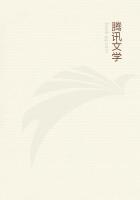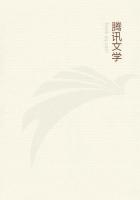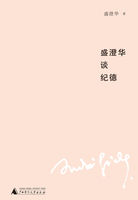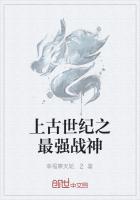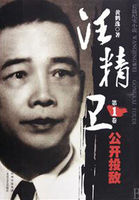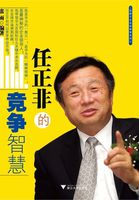When at length the doors were thrown open, Arlington was dry and cold, asked trifling questions about the voyage, and then, in order to escape from the necessity of discussing business, called in his daughter, an engaging little girl of three years old, who was long after described by poets "as dressed in all the bloom of smiling nature," and whom Evelyn, one of the witnesses of her inauspicious marriage, mournfully designated as "the sweetest, hopefullest, most beautiful, child, and most virtuous too." Any particular conversation was impossible: and Temple, who with all his constitutional or philosophical indifference, was sufficiently sensitive on the side of vanity, felt this treatment keenly. The next day he offered himself to the notice of the King, who was snuffing up the morning air and feeding his ducks in the Mall. Charles was civil, but, like Arlington, carefully avoided all conversation on politics. Temple found that all his most respectable friends were entirely excluded from the secrets of the inner council, and were awaiting in anxiety and dread for what those mysterious deliberations might produce. At length he obtained a glimpse of light. The bold spirit and fierce passions of Clifford made him the most unfit of all men to be the keeper of a momentous secret. He told Temple, with great vehemence, that the States had behaved basely, that De Witt was a rogue and a rascal, that it was below the King of England, or any other king, to have anything to do with such wretches; that this ought to be made known to all the world, and that it was the duty of the Minister of the Hague to declare it publicly. Temple commanded his temper as well as he could, and replied calmly and firmly, that he should make no such declaration, and that, if he were called upon to give his opinion of the States and their Ministers, he would say exactly what he thought.
He now saw clearly that the tempest was gathering fast, that the great alliance which he had formed and over which he had watched with parental care was about to be dissolved, that times were at hand when it would be necessary for him, if he continued in public life, either to take part decidedly against the Court, or to forfeit the high reputation which he enjoyed at home and abroad. He began to make preparations for retiring altogether from business. He enlarged a little garden which he had purchased at Sheen, and laid out some money in ornamenting his house there.
He was still nominally ambassador to Holland; and the English Ministers continued during some months to flatter the States with the hope that he would speedily return. At length, in June 1671, the designs of the Cabal were ripe. The infamous treaty with France had been ratified. The season of deception was past, and that of insolence and violence had arrived. Temple received his formal dismission, kissed the King's hand, was repaid for his services with some of those vague compliments and promises which cost so little to the cold heart, the easy temper, and the ready tongue of Charles, and quietly withdrew to his little nest, as he called it, at Sheen.
There he amused himself with gardening, which he practised so successfully that the fame of his fruit-trees soon spread far and wide. But letters were his chief solace. He had, as we have mentioned, been from his youth in the habit of diverting himself with composition. The clear and agreeable language of his despatches had early attracted the notice of his employers; and, before the peace of Breda, he had, at the request of Arlington, published a pamphlet on the war, of which nothing is now known, except that it had some vogue at the time, and that Charles, not a contemptible judge, pronounced it to be very well written.
Temple had also, a short time before he began to reside at the Hague, written a treatise on the state of Ireland, in which he showed all the feelings of a Cromwellian. He had gradually formed a style singularly lucid and melodious, superficially deformed, indeed, by Gallicisms and Hispanicisms, picked up in travel or in negotiation, but at the bottom pure English, which generally flowed along with careless simplicity, but occasionally rose even into Ciceronian magnificence. The length of his sentences has often been remarked. But in truth this length is only apparent. A critic who considers as one sentence everything that lies between two full stops will undoubtedly call Temple's sentences long. But a critic who examines them carefully will find that they are not swollen by parenthetical matter, that their structure is scarcely ever intricate, that they are formed merely by accumulation, and that, by the simple process of now and then leaving out a conjunction, and now and then substituting a full stop for a semicolon, they might, without any alteration in the order of the words, be broken up into very short periods with no sacrifice except that of euphony. The long sentences of Hooker and Clarendon, on the contrary, are really long sentences, and cannot be turned into short ones, without being entirely taken to pieces.
The best known of the works which Temple composed during his first retreat from official business are an Essay on Government, which seems to us exceedingly childish, and an Account of the United Provinces, which we value as a masterpiece in its kind.
Whoever compares these two treatises will probably agree with us in thinking that Temple was not a very deep or accurate reasoner, but was an excellent observer, that he had no call to philosophical speculation, but that he was qualified to excel as a writer of Memoirs and Travels.

